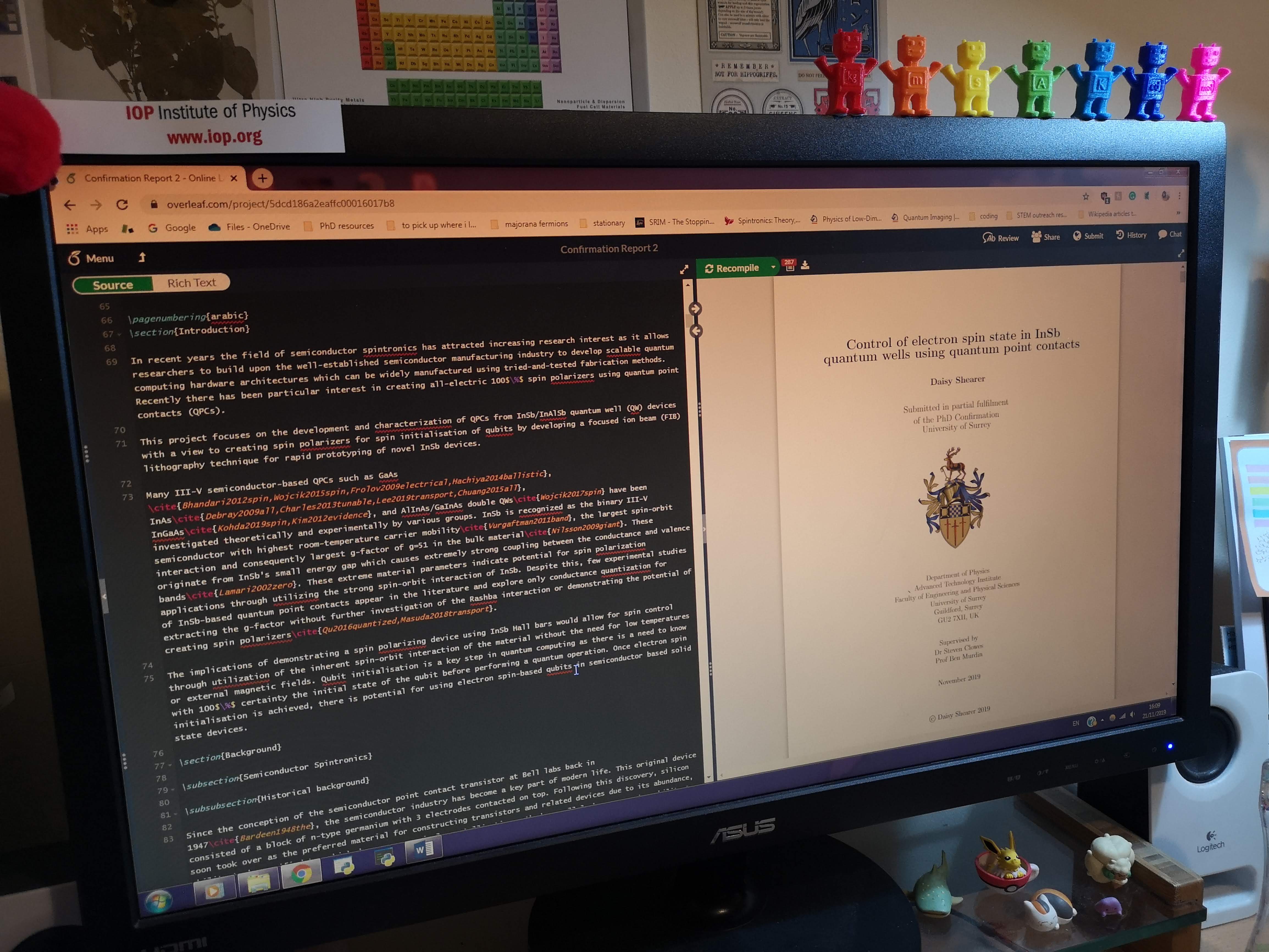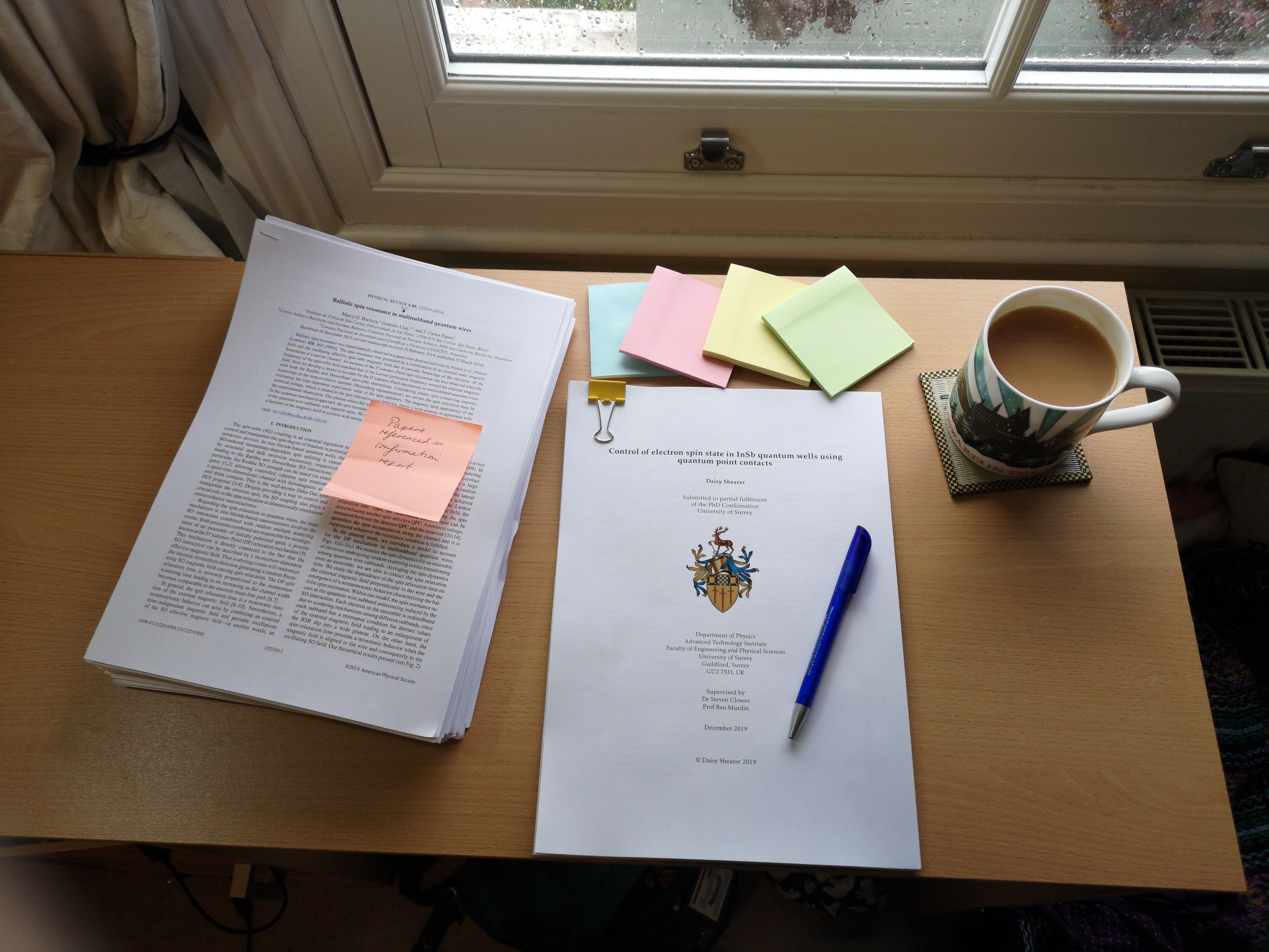The confirmation viva is a short oral examination that you do at the end of your first year as a PhD student at Surrey. You will be asked to submit a report summarising the work you’ve done over the first year and a plan for the rest of your PhD project. Essentially, this process is there to make sure you are on track. If you pass, you’ll be able to continue with your doctorate. If not, you might get a recommendation to do an MPhil instead.
But even though it sounds a bit scary, I found the confirmation process quite enjoyable. It’s an opportunity to discuss your work with academics outside your supervisory team which you don’t get to do all that often. The confirmation process consists of a written report and a viva voce examination. You can learn more about confirmation at the RDP workshop ‘The Confirmation Process’.

What is the confirmation viva?
A viva voce is an oral examination. Because of the nature of a PhD, they’re ideal for assessing your work because every student is different and has their own research project. Having a viva at the end of the first year of a PhD means that we can practice talking about our research well before the final viva at the end of our doctorate. It’s meant to ensure that you’re on track and can complete your PhD.
Before the confirmation viva
I made sure to prepare thoroughly before my viva. I went through my report with a pen, highlighters and post-it notes so that I could write down my thoughts and any potential questions I thought I might be asked. It can be helpful to chat with your supervisor about what you might be asked in the viva so that you can think about how you might respond in advance. As I’m a physicist, I felt I should make sure I was confident with the background theory, so I revisited some of the key textbooks related to my research and my notes on the underlying theoretical principles behind my experimental work. This gave me more confidence to answer any questions that might be thrown at me.
You’re also expected to provide a Gannt chart outlining your plans for the rest of your PhD with your report. Don’t stress about this too much if you can help it. I had my confirmation just before the pandemic so it’s safe to say that my plans have changed a lot since then and that’s okay! In the exam, you’ll be expected to justify your plans and explain which research outputs you expect to produce from your research.

During the confirmation viva
I had some reasonable adjustments put in place for my viva. If you think that adjustments would help you in your viva, it doesn’t hurt to contact the Disability and Neurodiversity team, even if you don’t have a diagnosed condition. My main areas of challenge around viva exams are the sensory environment and processing of verbal information. By having some small adjustments, I was able to take the examination at my own pace and adjust the environment to minimise sensory overwhelm.
My confirmation viva was around an hour long and included a short rest break in the middle. It was essentially a discussion of my work so far which was in my confirmation report and then a chat about what I aim to do going forward to complete my PhD. I was asked some tough questions about my results and findings so far, my plans, and some questions to probe my understanding.
There were a few questions that I struggled to answer so I took it as an opportunity to discuss the concepts surrounding these questions and ask for some recommendations for papers I should read after the viva. This should be expected in a viva as the examiners want to see where the boundaries of your understanding are. It felt more like a conversation than an exam.
Reflections on the confirmation viva
While it was very nerve-wracking, I really enjoyed the chance to talk about my research with academics who aren’t my supervisors. Afterwards, I had a much clearer idea of what I wanted to accomplish with my research as well as some potential areas to investigate in more detail. My examiners were impressed with my literature review and my experiments so far which helped reassure me that I was on track with my research. Passing my confirmation viva meant I continued into my second year with more confidence than before.
